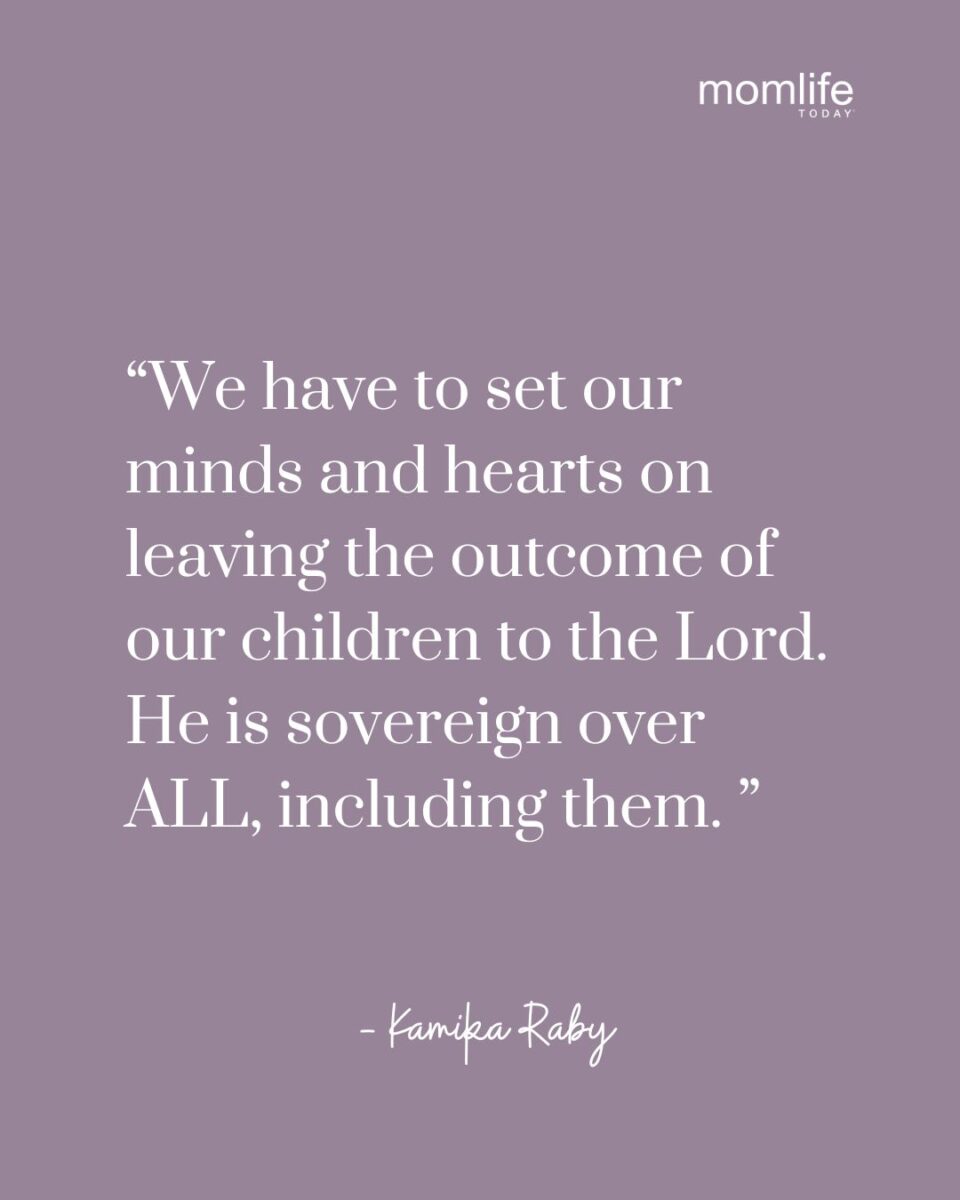Last Updated on February 23, 2024
Godly parenting takes work. Intentional work. There is no easy way around it.
Parenting advice is always a hot topic, and there are so many different ideologies out there, especially in the murky waters of social media.
By no means am I the perfect parent, nor do I have perfect children. But I do know the One who is perfect. God, the Creator of the universe and everything in it, including me, you, and the blessing that is the children He’s allowing us to raise.
So… why shouldn’t we heed and listen to the advice and principles from the perfect godly parent, himself?
After learning a lot on my own parenting journey, I want to share with you some of the biblical principles God has given us for godly parenting as we’re raising our kids.
4 Principles for Godly Parenting
There isn’t a “one size fits all” parenting style because we’re all unique individuals raising unique children who are all wired differently. But as believers, these four biblical principles should always act as our guide as we seek to raise godly children.
1. Killing the Negative Connotation of Discipline
Let’s go ahead and address the elephant in the parenting room and talk about the often-dreaded “D” word: discipline.
The root meaning of the word discipline is to “instruct and train.” Knowing this meaning is crucial because, when it comes to disciplining our children, our focus should be to instruct and train them.
As Christian parents, we have a God-given mandate to:
- Instruct and train our children in their character and behavior.
- Instruct and train our children in their knowledge and understanding.
- Instruct and train our children to prepare them for different stages of life.
- Instruct and train our children in the way they should go.
Most of us are very familiar with Proverbs 22:6 (NKJV).
Train up a child in the way he should go; and when he is old, he will not depart from it.
Proverbs 22:6
This very familiar passage of scripture is probably the most quoted verse when it comes to parenting. Unfortunately, many parents believe and take this verse as a “signed-sealed-delivered” guarantee that their child will turn out exactly the way they want them to. But, as we have all seen, sometimes that is not the case.
Proverbs 22:6 is more parent-focused than it is child-focused. It’s actually a command and encouragement to us as parents on how we are to raise our children.
The premise of this scripture is an instruction to raise our children in the way they are bent and in how they can glorify God with their lives. It’s about us providing them with the natural and spiritual tools they will need to have a full opportunity to go in the way God has prepared and purposed for their own lives.
How we parent is the only part of parenting we have influence and “control” over.
The reality is that our children still have a personal choice to make in their decisions to follow the Lord. But their choices don’t alleviate us from the responsibility of training them in the way they should go.
As believers, when we meet Jesus face-to-face, he’s not going to ask us about what our children did and didn’t do. He’s going to ask us if we took care of the responsibilities He gave us in raising them.
We have to set our minds and hearts on leaving the outcome of our children to the Lord. He is sovereign over ALL, including them.
Our job as godly adults is to keep praying for them, do our part, and let God take care of the rest.
2. The “Rod” of Correction
An important component of discipline (instruction and training) is correction. But there’s no doubt that correcting our kids is an area where many of us, as parents, tend to struggle.
A lot of our struggle is rooted in the reality of knowing we’re not perfect people. We feel like “hypocrites” for bringing correction to our children when we’ve likely done some of the very same things. But we have to work through those feelings that bring “parent guilt” and condemnation and condition our hearts and minds to remember that correction is a necessary part of discipline.
Oh, and let’s not forget our adversary, Satan. He is notorious for creating those accusations that leave us feeling guilty and condemned. He loves to throw our sins and mistakes back in our faces, even in the area of parenting.
No, we’re not perfect parents, and we’re going to make mistakes. But we cannot relinquish our God-given authority and responsibility to correct our children. And that correction is going to look different for every person.
There’s no need to go into details about perspectives on forms of corrective discipline. But the bottom line is, when your child does something they should not, there needs to be a form of correction.
How else will they realize the reality of their sin nature, the consequences of sin, and that we all need a Savior, Jesus? Correction is important for our child’s spiritual growth.
As the Word tells us, the Lord disciplines those whom He loves (Hebrews 12:6). This is a biblical truth. He corrects us when we’re wrong, and how He does that looks a little different for all of us.
Correcting our children requires courage, commitment, and sometimes sacrifice. We also have to avoid the unbalanced and tempting desire to be “liked” by our children when we need to administer correction.
Hebrews 12:11 tells us exactly that.
It is never fun to be corrected. In fact, at the time, it is always painful. But if we learn to obey by being corrected, we will do right and live at peace.
Hebrews 12:11, CEV
Your children—and maybe even you—may not like administering correction. But when correction is done with love, it will bear fruit that benefits everyone.
Proverbs 13:24 (CEV) tells us, “If you love your children, you will correct them; if you don’t love them, you won’t correct them.”

3. Grooming Hearts to Love and Serve the Lord
The umbrella for parenting is love. Like God’s grace and love for us, our love for our children should never change based on how they act or what they do or don’t do. The way we parent provides a prelude to what it’s like to have a relationship with the Lord.
As parents, we’re the first people in our children’s lives that they have a loving authority relationship with. In turn, how we parent our kids can help them understand the loving authority relationship with God and living God’s way.
Also, like God’s love for us, love doesn’t dismiss the need for correction and, at times, punishment. This can be a hard truth to understand because, as humans, we tend to be more drawn to the “good-feeling” side of love.
Giving our children necessary boundaries or correcting them is part of loving them, even if our children don’t like it or understand why. And if we’re honest as believers, we feel the same way at times in our relationship with God.
We have a responsibility as believers to teach our children and to help cultivate a heart that knows how to honor and obey us as parents. In turn, they will understand what it means to honor, obey, please, and love the Lord. None of us can have a relationship with the Lord without obedience.
We should be striving for godly parenting, not just this notion of “gentle” parenting, because sometimes gentleness alone is not the answer. It’s all about balance.
We have to stand and operate within our God-given right of authority in raising our children without abusing that authority.
Ephesians 6:4 tells us,
Do not provoke your children to anger, but bring them up by training and instructing them about the Lord.
Ephesians 6:4, ISV
Parenting in love requires constant reliance on the Lord. The Maker of the Universe. The Maker of you and your children. Ask Him what is best for your child, whatever the situation may be.
Be sensitive to the Holy Spirit and how he leads you to parent your children. We cannot parent well in a biblical and godly manner without the Word of God, help from the Holy Spirit, and continual prayer and wisdom.
4. Parenting from a Heart of God’s Love
As you can see, there are so many parallels between our relationship with God, our heavenly Father, and the parenting relationship we’re called to have with our children.
Remember, your season of raising children is a ministry and a God-given authority and responsibility. The reality is that one day we’ll have adult children who will not be under our immediate care. The hope is that they will become parents who have their own relationship with the Lord.
So in parenting as believers, our desire should be to pass on a legacy of healthy biblical and godly parenting to our children, for the next generation and generations to come.
Parenting takes work. Intentional work. There is no easy way around it.
But with the guidance and help of the Lord, the perfect godly parent, we can be the parents that our children need.
The Lord has blessed you to be a parent; therefore, He will also equip you with what you need to raise your children from a heart of His love.

Kamika Raby is a devoted military wife, homeschool mom, and believer. She’s married to Terrence, her supportive husband of 12+ years, and together they are raising three incredible sons, Nehemiah, Malachi, and Elijah. Kamika is a gifted educator with over 15 years of educational experience. She is also the founder and director of Imagodei Academy, an education homeschool program focused on improving educational practice options, serving and supporting homeschool families, and “Redeeming Education Through a Biblical Worldview”. She is passionate about impacting education, building strong families, Biblical discipleship, and helping others manage life in spaces God has purposed for them. You can learn more about Kamika at www.kamikaraby.com.


